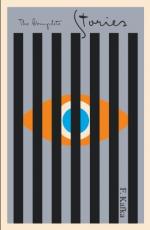|
This section contains 5,454 words (approx. 19 pages at 300 words per page) |

|
SOURCE: "On Death and Dying: Kafka's Allegory of Reading," in Kafka and the Contemporary Critical Performance: Centenary Readings, edited by Alan Udoff, Indiana University Press, 1987, pp. 87-96.
In the following essay, Bernheimer studies Franz Kafka's literary-existential exploration of the subject of death.
My title alludes to two very different books, Elizabeth Kübler-Ross's compassionate account of the feelings of terminally ill patients and Paul de Man's rigorous study of the self-destructiveness of literary texts.1 This double allusion is intended to suggest the scope of Kafka's conception of death, which ranges from naturalistic reference to the writer's approaching end to near suspension of reference in the allegorical figuration of his writing destiny. A close analysis of two famous passages, frequently conflated by critics, will demonstrate how Kafka' s different attitudes to death and dying are inscribed in his fiction as implied models for its reading.
The first passage is...
|
This section contains 5,454 words (approx. 19 pages at 300 words per page) |

|


